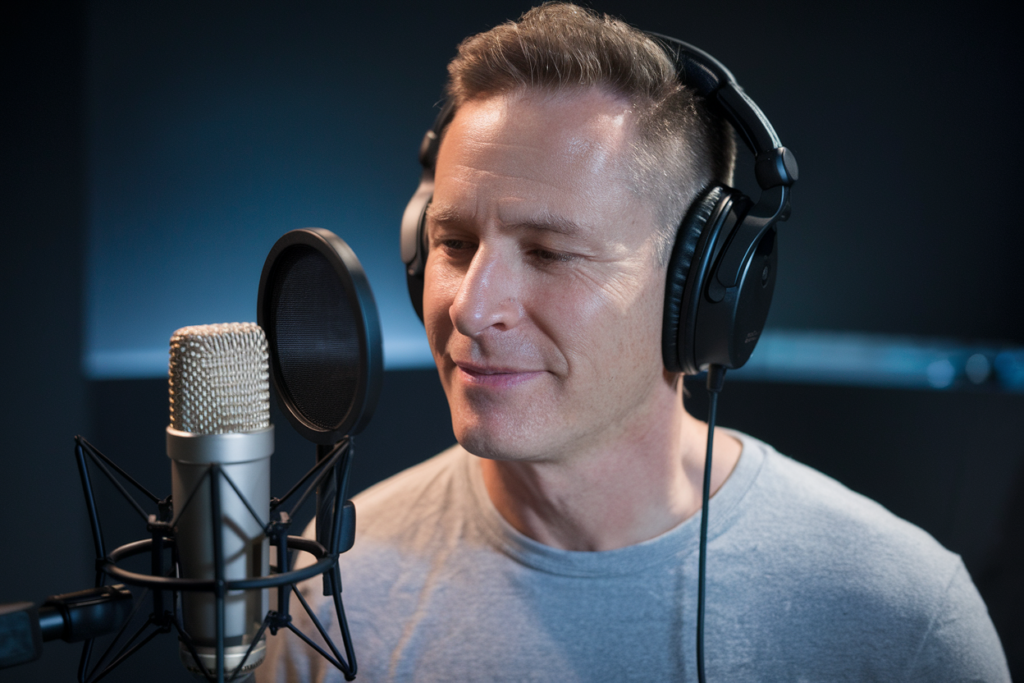Key Takeaways
- Authenticity Matters: Selecting voice talent that accurately represents European and diaspora Polish can significantly enhance the authenticity of your projects, fostering a deeper connection with audiences.
- Diverse Dialects: Recognizing the unique phonetic features and common expressions across different Polish dialects is crucial for selecting the right voice artist to convey emotional depth.
- Diaspora Influence: Diaspora Polish reflects varied cultural influences; understanding these nuances allows for richer storytelling that resonates with both local and global audiences.
- Wide Applications: European and diaspora Polish voiceovers are increasingly utilized in film, gaming, advertising, e-learning, and audiobooks to enhance narrative engagement through authentic representation.
- Challenges in Selection: Addressing challenges such as accent variability, cultural context, emotional range, audience connection, and technical skills is essential for successful voiceover work.
Ever wondered how to capture the rich nuances of European and diaspora Polish in voiceovers? Whether you’re creating content for film, gaming, or advertising, finding the right voice can make all the difference. You want authenticity that resonates with your audience and showcases the beauty of Polish culture.
With a growing demand for diverse voices in media, understanding how to effectively utilize both European and diaspora Polish can set your project apart. It’s not just about language; it’s about conveying emotion and identity through sound. Let’s explore how you can harness these unique vocal talents to elevate your storytelling and connect with listeners on a deeper level.
Overview of European and Diaspora Polish
European and diaspora Polish encompasses the diverse accents, dialects, and cultural influences found within Poland and among Polish communities worldwide. Understanding these nuances enhances voiceovers in film, gaming, advertising, and more. Authentic representation matters; it connects your project to audiences on a deeper level.
When selecting voice talent for your project, consider both European Polish and diaspora variations. For instance, native speakers from different regions may infuse distinct flavors into their performances—think of how a voice actor from Warsaw sounds compared to one from Kraków or Gdańsk. Each brings unique characteristics that can elevate storytelling.
Diaspora Polish also plays a crucial role in representing the global Polish community. These voice artists draw on their experiences living abroad while maintaining ties to their heritage. Their voices resonate with listeners who share similar backgrounds or who seek connection to Polish culture.
Prioritizing authenticity in your choice of voiceover artist not only enriches the narrative but also fosters trust with your audience. The right voice over talent can breathe life into characters and messages while ensuring relevance across various media formats.
Characteristics of European Polish Dialects
European Polish dialects present a rich tapestry of sounds and expressions that reflect the cultural diversity within Poland. Understanding these characteristics is vital for selecting the right voice talent for your projects.
Phonetic Features
Phonetic nuances set different Polish dialects apart. For instance, Silesian speakers often soften consonants, while Mazovian accents might stress vowels differently. You’ll notice that regional variations can significantly affect the clarity and emotional tone in voiceovers. In addition, certain areas exhibit distinct intonation patterns that contribute to their unique character. When choosing a voice artist, consider how these phonetic features may enhance or alter your message’s impact.
Common Expressions
Common expressions vary across regions and can add authenticity to your voiceover projects. For example, you might hear “czesc” (hi) used frequently in urban settings, while rural communities may prefer more traditional greetings like “dzień dobry” (good day). Familiarity with local phrases not only strengthens the connection with listeners but also showcases cultural authenticity in storytelling. Selecting a voice actor who understands these idiomatic expressions ensures your content resonates deeply with both Polish audiences and those familiar with Polish culture worldwide.
Diaspora Polish Variants
Understanding diaspora Polish variants enriches your voiceover projects. These variations reflect the unique experiences and cultural backgrounds of Polish communities worldwide, bringing authenticity to your narratives.
Variability Across Regions
Diaspora Polish varies significantly based on geographical location. For instance, Polish speakers in the United States often blend traditional accents with local dialects, creating a distinct sound that resonates with both native and non-native audiences. Voice artists from these regions might incorporate American English influences, altering pronunciation or intonation patterns. In contrast, those from the UK may exhibit different phonetic characteristics influenced by British English. This regional diversity enhances storytelling, allowing you to connect more deeply with listeners who share similar backgrounds or experiences.
Cultural Influences
Cultural influences shape how diaspora Polish is spoken and perceived. Many voice actors draw from their community’s traditions and practices, infusing their performances with cultural references that enhance relatability. For example, a voiceover artist might use specific idioms or expressions familiar within their community while still being accessible to wider audiences. This ability to balance authenticity with broader appeal is essential for effective communication in media projects like documentaries or commercials. By selecting voice talent who understand these cultural nuances, you ensure that your content resonates authentically across diverse platforms and demographics.
Applications in Voiceovers
European and diaspora Polish voiceovers find applications across various media formats, enhancing narratives with authenticity. You’ll encounter these voice talents in films, where they bring characters to life through their unique accents and dialects. Whether it’s a heartfelt drama or a light-hearted comedy, the right voice artist helps convey emotions effectively.
In gaming, incorporating diverse Polish voices adds depth to character development. Players connect more deeply with characters that sound authentic and relatable. Imagine engaging in a game where every dialogue feels genuine; that’s the power of an experienced voice actor who understands regional nuances.
Advertising also greatly benefits from using European and diaspora Polish voice talent. Ads resonate better when they reflect cultural authenticity. A well-chosen voice over can evoke specific feelings tied to local experiences, making messages memorable for audiences.
E-learning platforms increasingly use Polish voice overs to deliver educational content effectively. Clear articulation of complex topics is essential for maintaining learner engagement. Skilled voice over artists ensure that students grasp information while feeling connected to the material.
Audiobooks represent another growing area for Polish voices. Listeners appreciate narrators who not only read but also embody characters fully, enhancing storytelling elements through varied intonations and pacing.
With such diverse applications across different sectors, selecting the right Polish voice talent becomes crucial for any project aiming for authenticity and connection with its audience. Engage experienced professionals familiar with both European styles and diaspora influences to maximize your project’s impact.
Challenges in Voiceover Work
Navigating the voiceover landscape presents unique challenges, especially when working with European and diaspora Polish. Understanding these hurdles is vital for achieving authentic results that resonate with audiences.
Accent and Dialect Variability
Accents and dialects vary significantly across Poland and among Polish communities abroad. Selecting a voice actor who can accurately capture these nuances isn’t always straightforward. Each region, from Silesian to Mazovian, possesses distinct phonetic features that influence clarity and emotional impact. If you aim for authenticity, hiring talent familiar with these regional differences becomes essential.
Cultural Context
Cultural context plays a crucial role in voiceovers. Diaspora Polish reflects the experiences of communities shaped by their surroundings. A voice artist needs to understand not only the language but also the cultural references that inform how phrases are interpreted. This depth of knowledge enriches performances and ensures messages resonate authentically with listeners.
Emotional Range
Voice actors must convey a wide array of emotions while maintaining cultural integrity. Finding talent capable of shifting between comedic timing and dramatic delivery requires careful consideration. You want someone who embodies the character’s spirit while aligning with audience expectations—this balance often proves challenging yet rewarding.
Audience Connection
Establishing a connection with your audience hinges on selecting the right voice over talent. Authenticity builds trust, which enhances engagement across various media formats like film, gaming, or advertising. Without this connection, even well-produced content may fall flat.
Technical Skills
Technical proficiency adds another layer to voiceover work. Voice artists need skills in modulation, pacing, and articulation to ensure clarity in recordings. Additionally, familiarity with audio equipment can enhance production quality—something critical if you’re looking for professional results.
By understanding these challenges within European and diaspora Polish voiceovers, you position yourself better for successful collaborations in your projects. Prioritizing authenticity and connection helps create impactful narratives that truly engage your audience.
Conclusion
Embracing the richness of European and diaspora Polish in voiceovers can elevate your media projects to new heights. By prioritizing authenticity and understanding the nuances of various accents and cultural influences, you’ll create a deeper connection with your audience.
Selecting the right voice talent not only enhances storytelling but also fosters trust among listeners. Whether in film, gaming, advertising, or e-learning, unique vocal talents can add layers of meaning that resonate on multiple levels.
As you navigate this vibrant landscape of Polish voices remember that each dialect tells its own story. Choosing wisely ensures your content stands out while honoring the diverse experiences within the Polish community worldwide.
Frequently Asked Questions
Why is authenticity important in Polish voiceovers?
Authenticity ensures that the voiceover resonates with audiences, reflecting true Polish culture and nuances. It builds trust and enhances emotional connection, making content more relatable.
What are the key differences between European and diaspora Polish?
European Polish often reflects regional accents and dialects unique to Poland, while diaspora Polish incorporates influences from other cultures based on experiences abroad, creating distinct vocal characteristics.
How do regional accents affect voiceover quality?
Regional accents bring specific phonetic features and expressions that enhance clarity and emotional tone. Understanding these nuances helps voice actors deliver performances that resonate deeply with listeners.
In which media formats are Polish voiceovers used?
Polish voiceovers are utilized in various formats including film, gaming, advertising, e-learning, and audiobooks. Each format benefits from authentic voices that connect with their target audience.
What challenges do voice actors face when working with Polish dialects?
Voice actors must navigate a wide range of accents and cultural references. They need to capture the emotional range while maintaining authenticity for effective communication across diverse projects.







